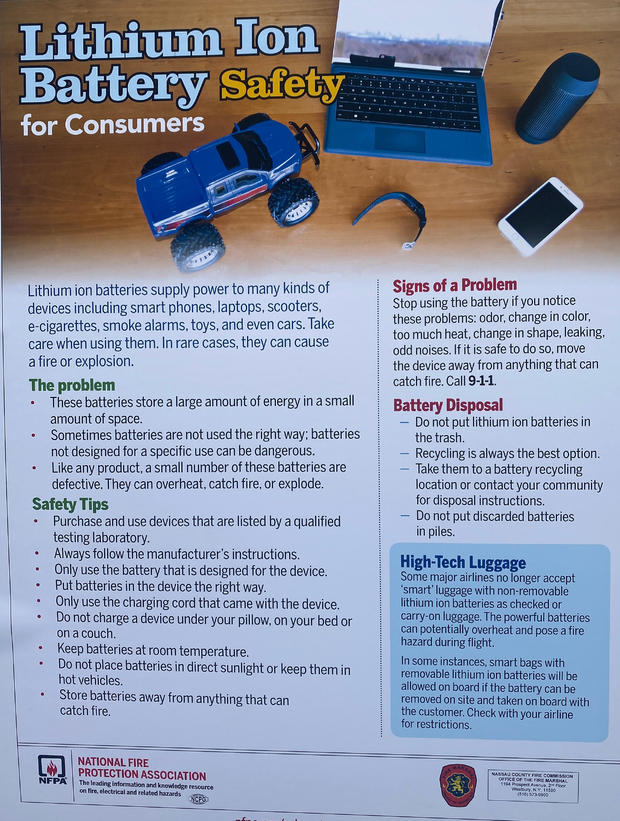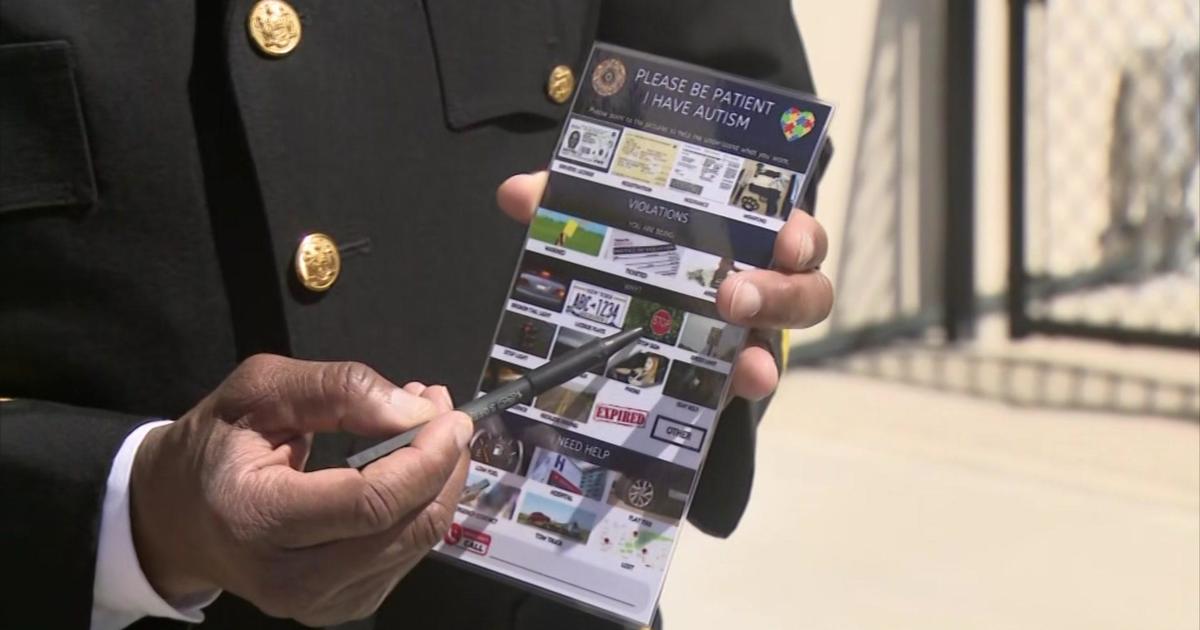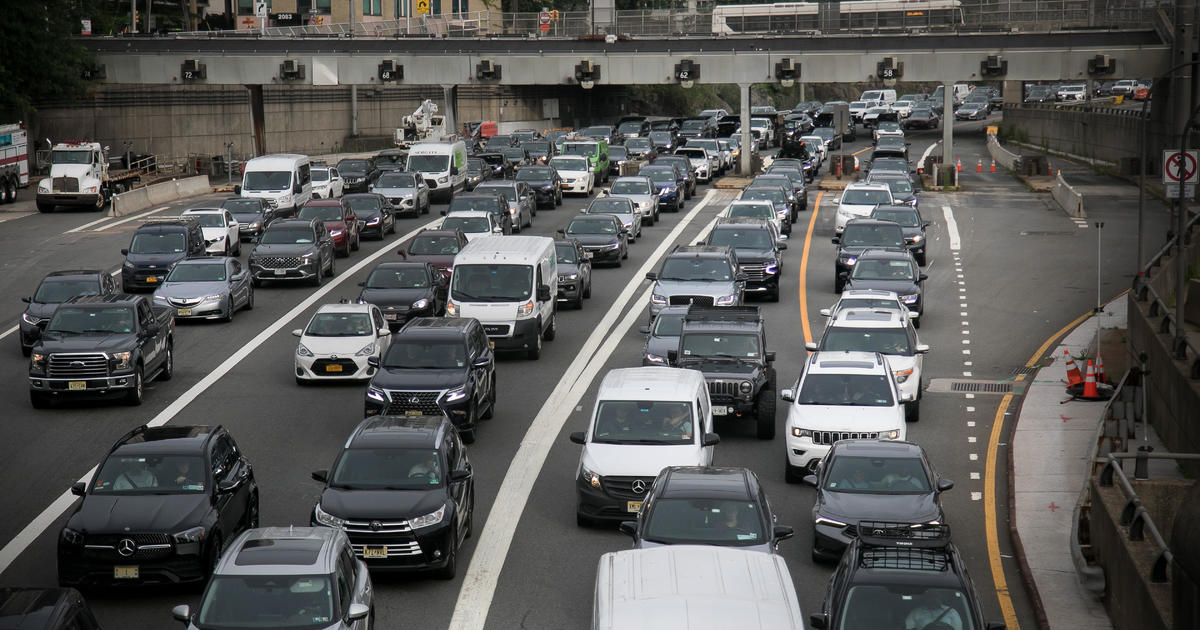Nassau County fire officials issues warnings and advice on how to properly charge lithium ion batteries
BETHPAGE, N.Y. -- They're part of our everyday lives. Lithium ion batteries enable us to recharge everything from our phones to power tools and cameras.
But battery-related fires are on the rise in our area.
CBS2's Carolyn Gusoff has some important safety information from Long Island fire officials.
There were frightening moments at a Hicksville elementary school back in March. There was a fire in a paper closet and the school was evacuated. The culprit was a lithium ion battery charging.
"There is a liquid inside the battery and when there is an internal failure of the battery, the liquid gets heated, it turns into a gas, and the gas expands," said Capt. Michael Mennella, Nassau County's fire marshal.
The results can be deadly. Citing a long list of recent fires, Nassau officials are now sounding the alarm.
"Everything you use, from blenders to tools to cars, they all use these batteries," Nassau County Chief Fire Marshal Michael Uttaro said. "A lot of times, homes have electrical systems that can't maintain charging 10 or 15 of these devices in an overnight period."
In the years since CBS News first showed us exploding e-cigarettes and scooters, fires in our area have increased exponentially, just from home charging.
Lithium ion batteries are under investigation in last weekend's Hell's Kitchen fire. The FDNY cites 60 battery-related fires in the first four months of the year, double that of last year.
Officials warn to never charge e-bikes indoors or next to the house, and to only use a charging cord approved for the device. They also say to never charge a phone or laptop on anything combustible, such as a couch or bed.
"Sometime you pick it up and it's almost hot. So those are the things we're talking about. Now, if you had that under a blanket, a blanket got knocked on top of it, or it's on on top of a bunch of papers, think of what would happen," Uttaro said.
"A house can be replaced. A life can't," said John Murray, chief educator at the Nassau Firefighter Museum.
And don't leave a device plugged in long after it's charged.
"Overcharging these things is what's causing many of these problems, because as I said it's distressing the battery," Murray said.
The fires are so difficult to put out, fire officials wouldn't even light one for a demonstration.
Disposal is also key. Don't throw them in the trash to end up in a landfill or recycling plant. Find a municipal or box store safe disposal.
And don't reach for the home fire extinguisher if one starts smoking. Fire officials say it won't work. Just get of the house and call 911.
Officials add, these batteries are safe when properly charged with the correct charging equipment.





